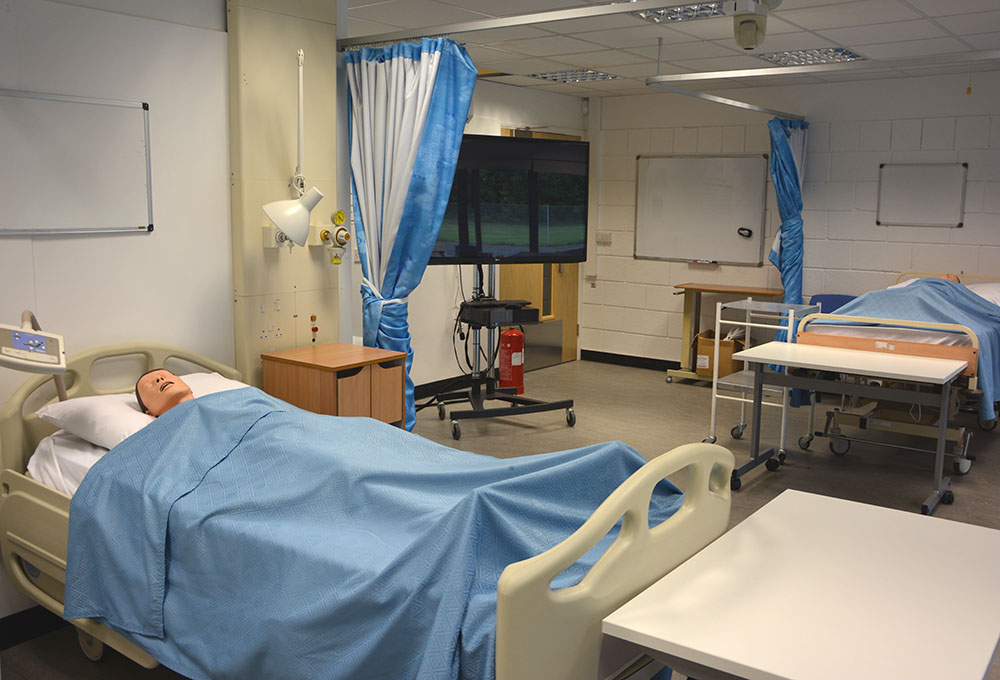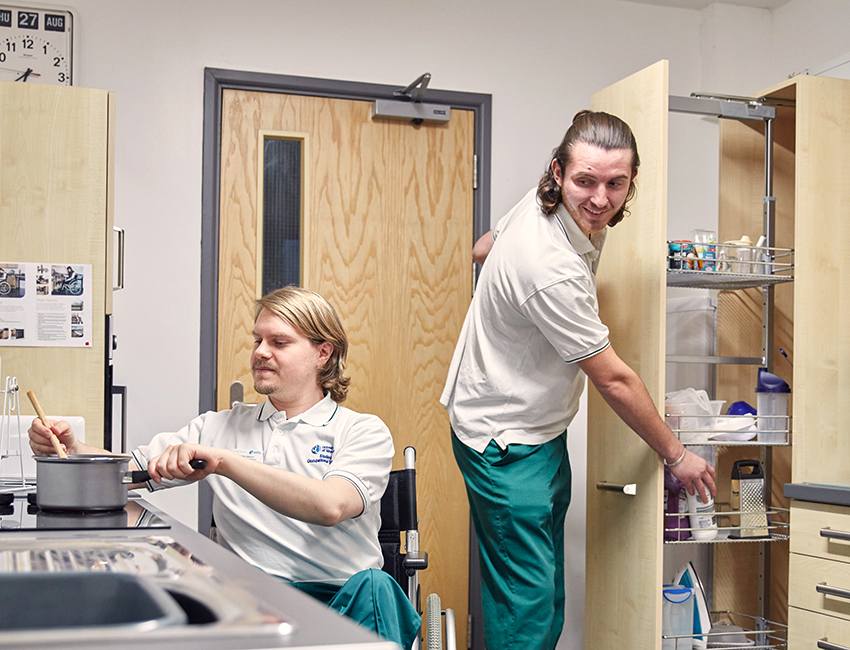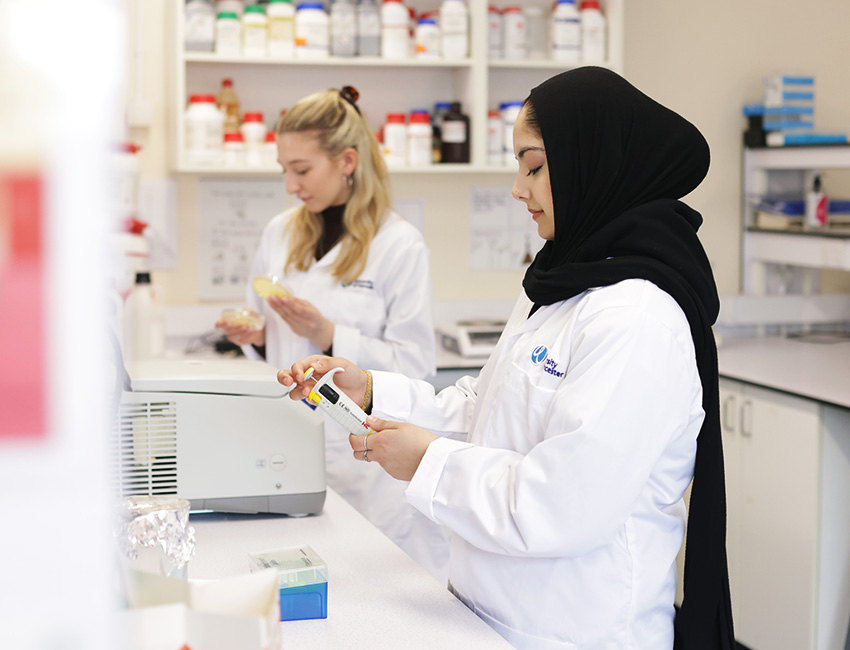You’ll need to apply for this course through your employer, with their support. Individuals cannot apply directly to the University.
This course is accredited by the British Dietetic Association (BDA) and is approved by the Health and Care Professions Council (HCPC). It leads to eligibility to apply for HCPC registration and follows the core curriculum set out by the BDA.
Overview
Our course covers the science behind healthy living - from food production and nutritional content to how dietary changes can prevent disease or impact pregnancy. During your time on campus, you'll develop your communication skills to support others in making healthier choices and improve your people skills through working with our IMPACT members, learning from those with lived experience in health and social care.
After building a strong foundation of nutritional expertise, you'll engage with workshops including kitchen sessions, food science labs and technical anthropology to investigate the science behind nutrition. On-the-job simulations in our clinical skills labs, mock wards and on-site community house will provide you with hands-on experience in nutrition planning, patient assessments and practical skills for real-world scenarios.
The Dietitian Degree Apprenticeship is delivered alongside an employing partner organisation allowing you to immediately embed your learning into practice in the workplace. This route to a professional qualification responds to contemporary workforce challenges in health and social care, as well as working to widen participation. The apprenticeship is suitable for those in an existing role, for example, a dietic assistant, as well as those that are new to this sector.
How apprentices study
Teaching and learning on an apprenticeship will be a collaborative process between you, your employer and the university. This will include attending university for tutorials, work-based learning, when required to complete the apprenticeship an alternative placement and mentoring by a qualified/experienced colleague.
In a typical week apprentices have around 6 - 9 contact hours of university teaching across 3 semesters. However, the precise contact hours will depend on the year of study and the module you are studying. An example of teaching contact time will be structured around:
- 3 hours of interactive workshops/skills simulations or student seminars either face to face or online
- 3 hours of (large group) lectures either face to face or online
- 3 hours of asynchronous online teaching and learning
Apprenticeship students will have the opportunity to study alongside other students completing a BA (Hons) or BSc (Hons) Degrees.
As an apprentice, you’ll spend part of your working time developing the knowledge, skills and behaviours needed for your qualification. This is known as ‘off-the-job’ learning, and your employer will support you to complete it. You and your employer will agree how this learning is structured to best support your development and progress.
Course content
We regularly review our courses to reflect the latest research and developments in the subject area, as well as feedback from students, employers and the wider sector. As a result, modules may change to ensure the course remains current and relevant.
All modules are mandatory to ensure you’re eligible to register as a dietician with the HCPC.
Careers and employability
Most graduate apprentices are offered roles within their work place as registered dietitians.
Nutritionists and dietitians are in demand in a variety of industries, so there are lots of exciting opportunities.
You could:
- Work in a hospital setting
- Support communities to embrace a healthy lifestyle
- Work for public health and support their campaigns
- Work for a professional sports club
- Become self-employed and set-up your own practice
- Move into research or training
You will also gain a science background and develop people skills during this course, making you employable in a wide range of areas.
Course highlights
Teaching and Assessment
We enable you to develop the independent learning capabilities and transferable skills that will equip you for lifelong learning and future employment, as well as academic achievement.
A mixture of independent study, teaching and academic support through the personal academic tutoring system, enables you to reflect on progress and build up a profile of skills, achievements and experiences.
Teaching and assessment contents
You are taught through a combination of interactive workshops, lectures, seminars and group activities. Interactive workshops take a variety of formats and are intended to enable the application of learning through discussion and small group activities. Seminars enable the discussion and development of understanding of topics covered in lectures and group activities are focused on developing dietetics specific skills.
Apprentices will have opportunity to engage in inter-professional learning through the course along with health and social care professionals within the school of Allied Health and Community.
There will be opportunities to engage with IMPACT, the university organisation of service users and their families/carers to support teaching and assessments.
Apprentices will complete a minimum of 1000 hours of practice learning, working alongside experienced clinicians in a range of areas, location and specialities. This will enable apprentices to apply their knowledge, skills and behaviours in a variety of settings.
Learning is supported by a range of excellent learning facilities including the Library Services at The Hive, virtual learning environments and extensive electronic learning resources.
Regular meetings will be scheduled between the apprentice, the university and then employer to monitor and support learning and development with goal setting.
Entry requirements
We accept a range of qualifications, including Access to HE Diplomas. We also take into account any work or life experiences you have, alongside any qualifications you hold.
You’ll need to apply for this course through your employer, with their support. Individuals cannot apply directly to the University.
Any questions?
If you have any questions about entry requirements, please email apprenticeships@worc.ac.uk
Fees
Fees contents
Fees for this apprenticeship will be paid by the employer, through apprenticeship funding via the Growth and Skills Levy.
How to apply
How to apply contents
All applications are through your employer, and you must have the support of your employer. Please discuss the possibility of completing the apprenticeship with your line manager and/or HR department. Your employer can then contact the University to discuss applying to the programme.
Individuals cannot apply directly to the University.
Contact
If you have any questions, please get in touch. We're here to help you every step of the way.

Apprenticeships team
apprenticeships@worc.ac.ukMore to explore
Open Days
Visiting us is the best way to get a feel for student life at the University of Worcester.

The City of Worcester
Worcester is a welcoming university city with great transport links and plenty of student parking.

Accommodation
Benefit from our accommodation guarantee. We have rooms on campus to suit every budget including en-suite options.









